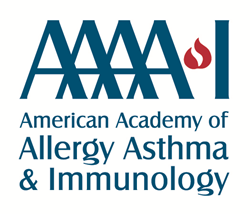
“More research must be done to look closer at these trends to help us understand how well early introduction to peanut works to prevent peanut allergies in real-life situations.”
MILWAUKEE (PRWEB)
February 10, 2021
According to new research scheduled for presentation during the 2021 American Academy of Allergy, Asthma & Immunology (AAAAI) Virtual Annual Meeting, despite finding that peanut allergy prevalence is still high among those with early introduction to peanut, the study authors did discover that early introduction led to a 16% decrease in peanut allergy.
While the abstract of this research (#L5) was included in an online supplement to The Journal of Allergy and Clinical Immunology that was published February 1, the study will be presented in more detail during a late breaking oral abstract session on Saturday, February 27 at the 2021 AAAAI Virtual Annual Meeting.
Introducing peanut early in a child’s life has been shown to prevent peanut allergy during randomized controlled trials. After infant feeding guideline updates, researchers have seen a significant increase in peanut introduction within the first 12 months of an infant’s life. Researchers compared a population-based sample of 1,933 infants from 2018-2019 to a sample of 5,276 infants recruited 10 years earlier (2007-2011) to examine how peanut allergy prevalence has changed since the new guideline updates.
Researchers collected demographic and infant feeding data via questionnaires and performed skin prick tests and food challenges on infants who were sensitized. Models were used to compare prevalence between cohorts and were adjusted for known food allergy risk factors. Researchers found that the adjusted peanut allergy prevalence in 2018-2019 was 2.6% compared to 3.1% in 2007-2011, which amounts to a 16% decrease.
Additional adjustments in the models to account for eczema did not lead to significant differences. From 2018-2019, 77.7% of infants consumed peanut within 12 months. Of those who consumed peanut, 2.6% were allergic to peanut. For infants who did not consume peanut within the first 12 months of life, 4.8% were found to be allergic to peanut.
First author of the study, PhD candidate Victoria Soriano from the Murdoch Children’s Research Institute, shared more about what this means for future research. “While we did see a decrease in individuals with peanut allergy, the prevalence of peanut allergy overall continues to be high even with early introduction. More research must be done to look closer at these trends to help us understand how well early introduction to peanut works to prevent peanut allergies in real-life situations.”
Visit aaaai.org to learn more about food allergies and visit annualmeeting.aaaai.org to learn more about the 2021 AAAAI Virtual Annual Meeting.
The American Academy of Allergy, Asthma & Immunology (AAAAI) represents allergists, asthma specialists, clinical immunologists, allied health professionals and others with a special interest in the research and treatment of allergic and immunologic diseases. Established in 1943, the AAAAI has over 7,000 members in the United States, Canada and 72 other countries. The AAAAI’s Find an Allergist/Immunologist service is a trusted resource to help you find a specialist close to home.
Share article on social media or email:

